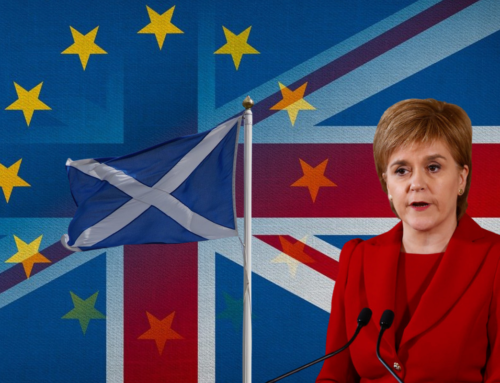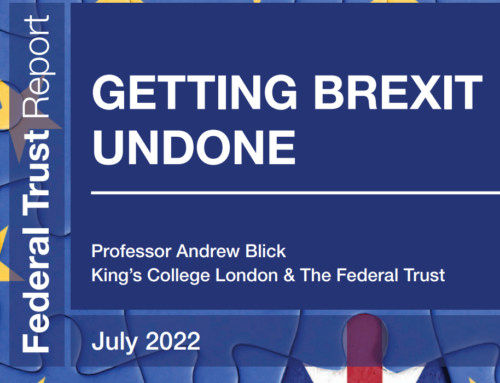by Jaap Hoeksma
Philosopher of law and director of Euroknow; Author of “The Case Bundesverfassungsgericht versus EU Court of Justice – Can the EU function as a democracy without forming a State?”
In hindsight, Brexit bears all the hallmarks of a tragedy of errors. As from Thatcher’s Bruges speech in 1988, British politicians have been fighting against the phantom of a European super-state, while the EU was actually evolving towards a democratic regional organisation. Conservative Prime Ministers have been criticizing the EU as an undemocratic monster, whereas the Union was turning in reality into a democratic union of democratic states. The EU has played a most regrettable role in the drama as it proved to be unable to defend itself against these allegations and wilful misrepresentations. If anything good is to come from Brexit, it should be that the EU commits itself to its identity as a Union of democratic states, based on the rule of law, which functions as a constitutional democracy.
Sharing sovereignty
The suggestion that the EU has inevitably to result in the creation of a federal state stems from the early years of the process of European integration. According to the prevailing political theory of the day, states wishing to avoid the renewed outbreak of war could either form a union of sovereign states or merge into an overarching federal state. In the first option the member states would retain full sovereignty, whereas they had to transfer their sovereignty to the federal state in the second scenario. However, the six founding states of the European Communities crafted a different path. The novelty of their approach was that they started to share sovereignty in order to prevent the recurrence of war. Once they had discovered in practice that sharing sovereignty in the field of coal and steel was a reasonable price to pay for the guarantee of peace, they broadened their experiment to the whole of the economy. In their aspiration to create an ever closer union between the peoples of Europe, they abolished borders and tariffs.
Citizens of Europe
While the European Communities showed all the signs of a free trade association, they were intended to unify the citizens of Europe. At the end of the year in which the United Kingdom, Ireland and Denmark joined the EC, the European Council identified the European Communities through the 1973 Declaration of Copenhagen as a ‘Union of democratic States’. The first decision, which the political leaders of the states, gathered in the Communities, subsequently took, was to give their organisation democratic legitimacy too. In 1979, the European Parliament was directly elected by the citizens of the member states!
A democratic Union
From the present perspective it seems obvious that, if two or more democratic states agree to share the exercise of sovereignty in a number of fields in order to attain common goals, the organisation they establish for this purpose should be democratic too. There is no point in governing a union of democratic states in an undemocratic manner. While the latter point was obvious, the conceptual problem lied in the fact that the experiment was unprecedented. There was no blueprint for the creation of a democratic organisation of states. According to the prevailing political theory it was even an anomaly! Sovereign states could be democratic, but the relations between states belonged to the domain of diplomats. Hence, sceptical British politicians interpreted every single decision of the EU as a step towards the dreadful European super-state, even if their original goal was to make the Union more democratic.
Missing link
Obviously, the pace of the EU’s evolution to a democratic union of states and citizens accelerated after Brexit. No British Conservative government would have accepted the “rule of law mechanism”. Now it is time for the EU to come to terms with its own democratic credentials. The EU has not become a federal state, as the Brexiteers still relish to think, but it may lead the way as the first democratic regional organisation, i.e. as the first democratic union of democratic states in the world. While the UK is returning to the sovereignty concept of a foregone era, the EU endeavours to form the missing link between individual states and the UN-system of global governance.







